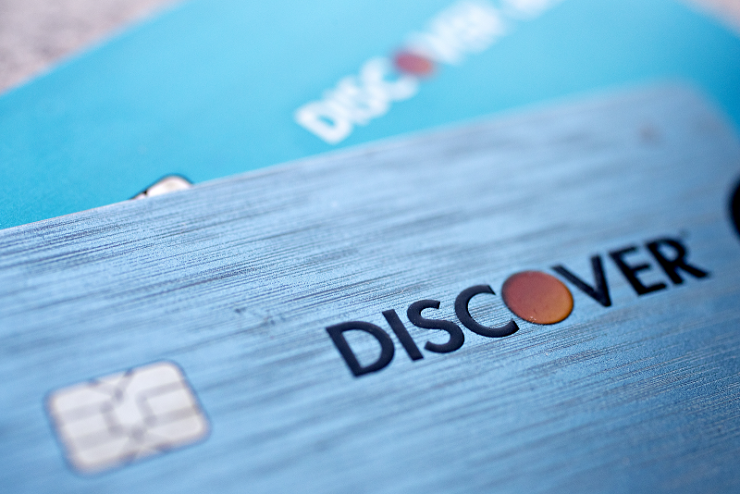Discover Financial Services' stock slid about 10% Thursday morning after the financial services giant said it’s temporarily freezing stock buybacks while it conducts an independent investigation of its student loan operations at the request of its board.
The move raises concerns of a potential violation of two previous Consumer Financial Protection Bureau consent decrees that have haunted Discover for the last several years.
Discover CEO Roger Hochschild wouldn't disclose details or any regulatory reason for the probe on a conference call with analysts on Thursday, except to say the investigation is focused on “student loan servicing practices and related compliance matters.”
Analysts said the decision to temporarily suspend buybacks suggests fines for any further CFPB disciplinary actions could be steep.

“We read the Board action of temporarily suspending the buyback as communicating to investors that, at a minimum, there is risk of a sizeable fine, so better to hold onto capital pending the result of the independent review and any potential regulatory action,” Morgan Stanley analysts said Thursday in a note to investors.
Discover has faced two previous consent orders from the CFPB. The first
A systems migration problem in 2017 caused Discover to erroneously withdraw funds from millions of consumers' accounts, violating terms of the original consent order.
Discover in 2020 was
During the second quarter, Discover's organic student- loan growth rose 4% and personal loans grew at the same rate, the company said.
The consumer bureau said the bank’s migration to a new servicing platform led to unauthorized payment withdrawals, misrepresentations about what borrowers owed and violations of a prior 2015 enforcement action.
Discover’s core credit card business remains strong. Sales rose 18% during the quarter from a year earlier, and charge-off rates remain low at 1.8% during the second quarter, 32 basis points below the figure from a year earlier.
Inflation accounted for about 2% to 3% of the recent sales growth, Discover said.
Discover increased new card accounts by 39% during the second quarter compared with a year earlier. While marketing expenses increased by $79 million, or 45%, year over year, operating expenses were flat.
Hochschild said the Fed’s plans for tighter monetary policy could raise the risk of a recession, but he sees no imminent economic downturn based on Discover's customer behavior so far.
“We also saw our payment rate go up last quarter, which means that in our consumer segment, household liquidity remains very strong,” Hochschild said in an interview on Thursday.
Discover’s revenue during the quarter was $3.2 billion, down 10% from a year earlier, which the company attributed to equity gains during the prior year. Net income for the quarter was $1.1 billion, down 35% from the same period a year earlier due to negative comparisons with equity investments and a steep loan-loss reserve release last year.






